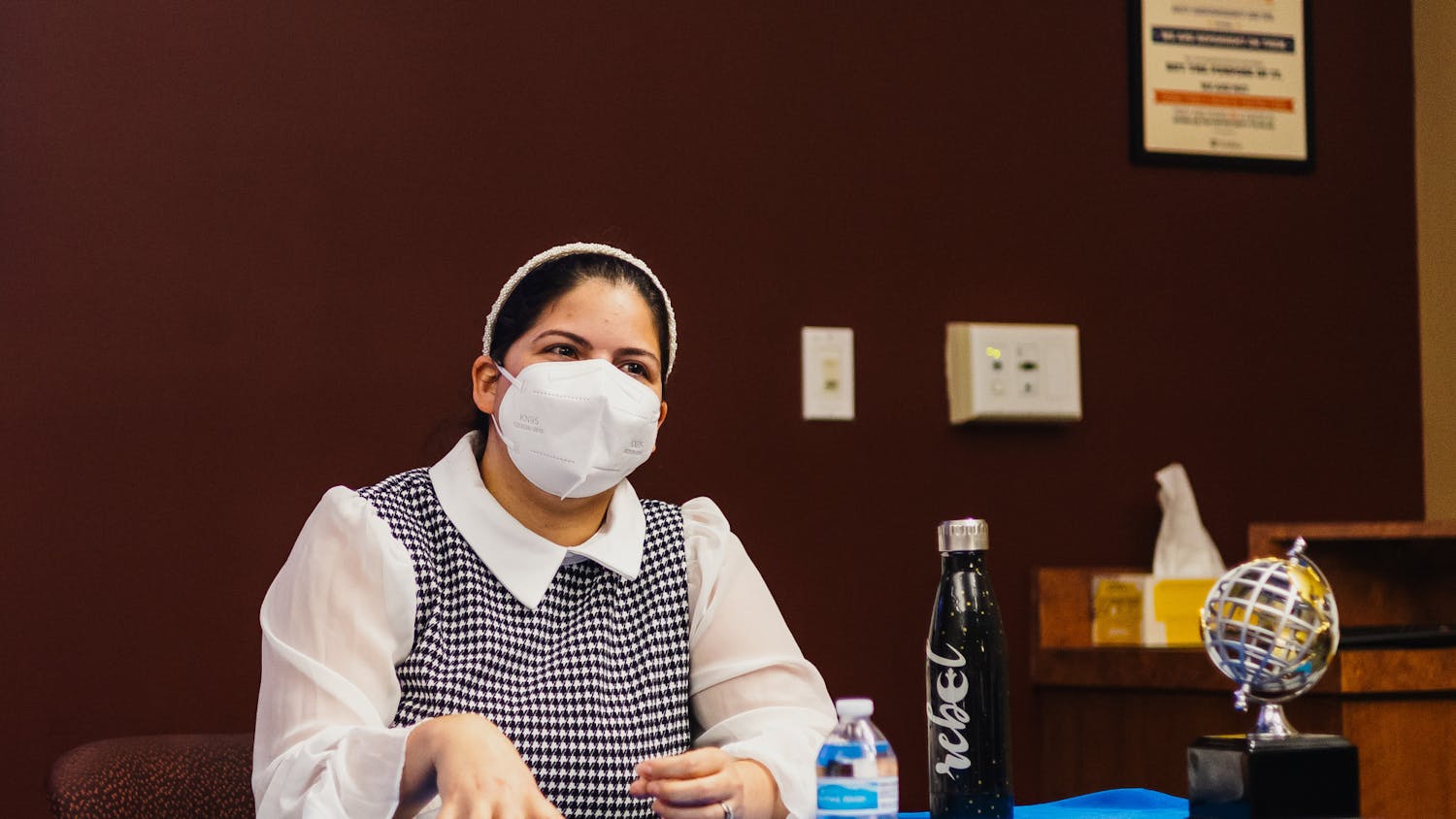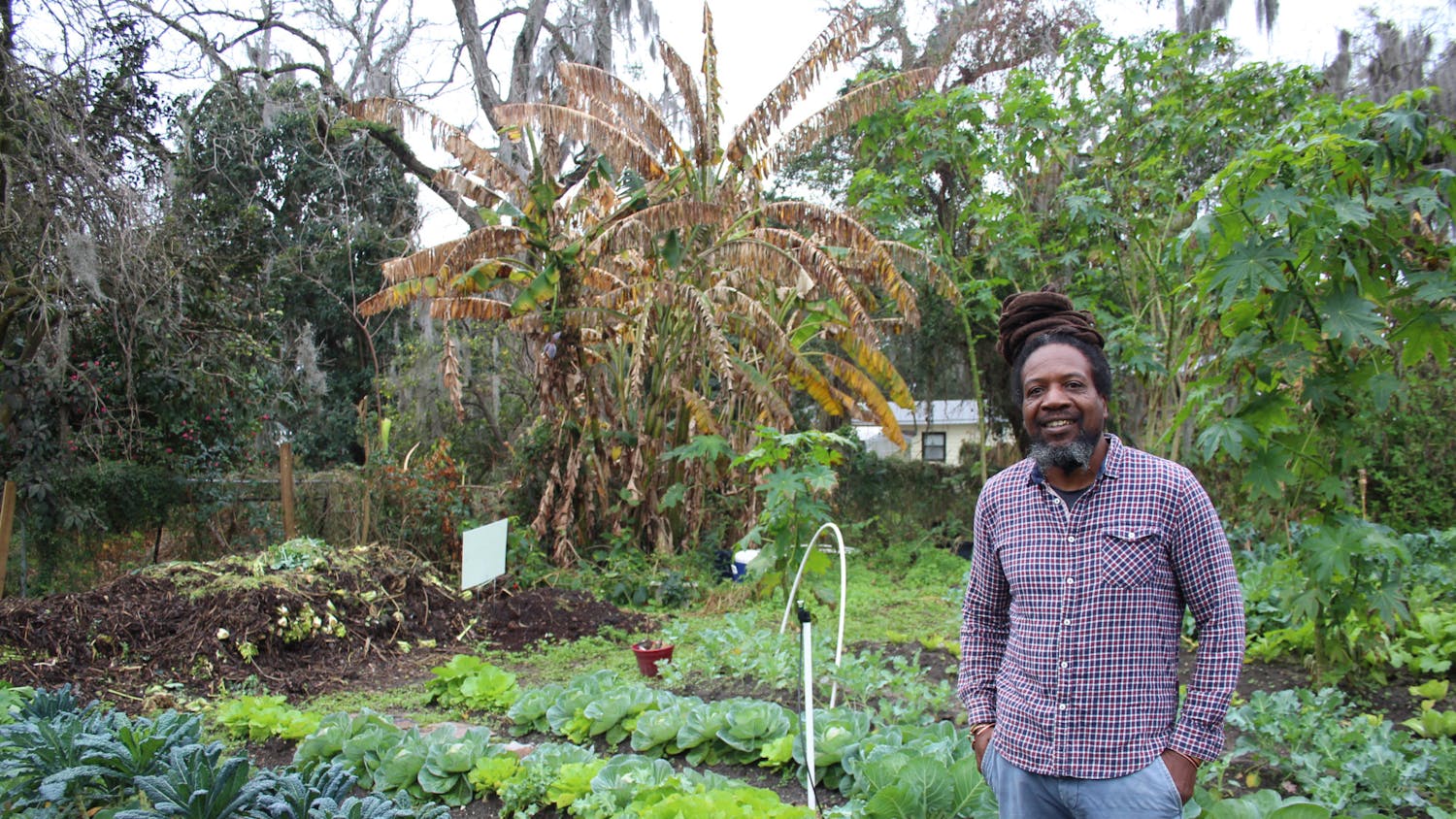Since the Porters Community Farm opened in August, the downtown vacant-lot-turned-garden has received a collection of in-kind donations: a lawn mower, a weed-whacker and irrigation supplies.
But on Thursday, it received a gift that will keep giving — about 22 potted fruit trees.
Chestnut Hill Nursery contributed $500 worth of apple, peach, nectarine, fig and pomegranate saplings, as well as blueberry and blackberry bushes.
The Porters Community Farm is located in a low-income area where the annual household income is about $13,000, compared with Gainesville’s average household income of about $27,000, according to a press release. It’s an area that has historically been “underserved,” said Travis Mitchell, the farm project manager.
The trees will be planted next week on the farm property, Mitchell said. Most of the produce will go to local charities, such as St. Francis House, to provide a reliable source of fresh food.
Gainesville community members can help plant the trees Wednesday from 9 a.m. to 1 p.m. at the garden, 518 SW Third St.
Heather Blake, a Chestnut Hill Nursery sales representative, said the plants were grown in the town of Alachua and are 1 to 3 years old. She said it will take another year for most of them to produce fruit once planted permanently.
“I know a lot of local gardeners who donate fresh produce when they have it,” Mitchell said. “I don’t know anyone locally whose specific mission is to do that.”
Blake said fruit trees seemed to be the ideal way to help the farm because they produce great results with little input.
“A lot of projects lack the volunteer hours to keep them going, whereas with fruit trees and berries, once you get the initial planting and irrigation installed, there’s minimal maintenance,” she said.
Blake said she is optimistic about the impact increased access to fresh fruits can have on low-income Gainesville families.
“There’s a real need for especially children, but also adults in the community, to have nutritional foods available to them,” she said. “Many kids these days don’t have the experience of having fresh fruits — most of it’s canned. We wanted them to experience planting a tree and eating the fruit.”




